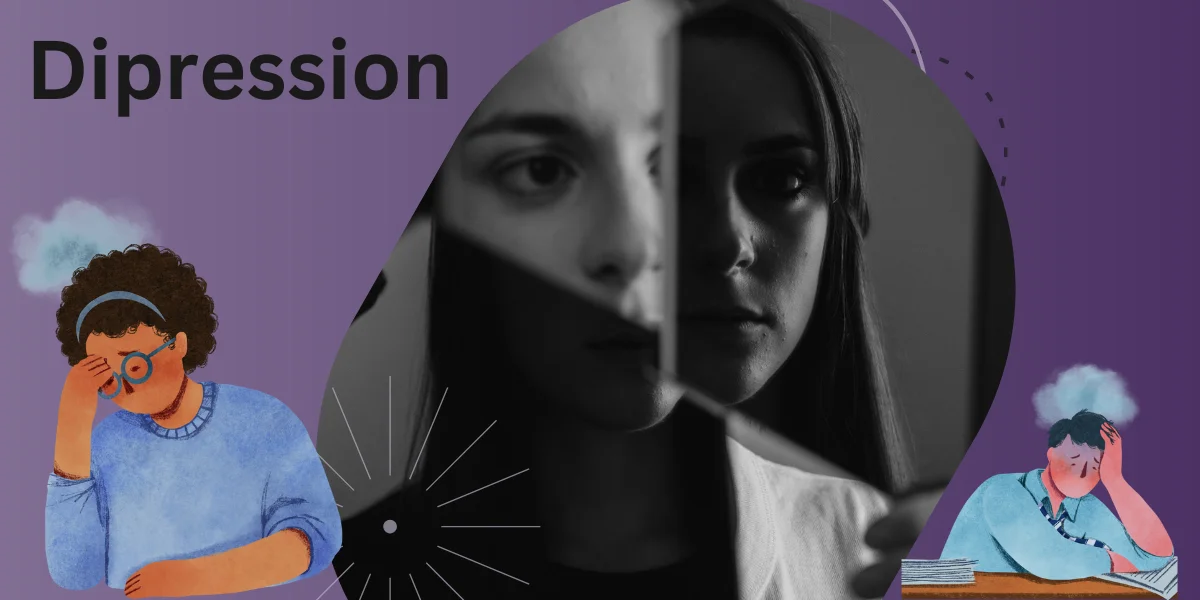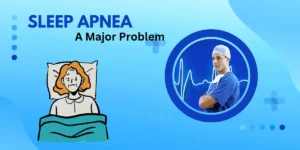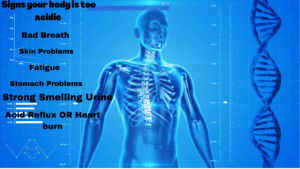Depression is a mental health disorder characterized by persistent feelings of sadness, hopelessness, and lack of interest in activities that were once enjoyed. It affects millions of people worldwide and can have a significant impact on their quality of life. But there are some ways what helps people cope with depression .It is more than just feeling down or having a bad day, and it can interfere with daily functioning, relationships, and work performance. While the exact causes of depression are not fully understood, it is believed to be the result of a combination of genetic, environmental, and psychological factors. Fortunately, effective treatments such as therapy, medication, and lifestyle changes are available to help manage and cope with depression .

What is Depression ?
Depression is a mental health problem where a person feels sad, hopeless, and unmotivated for a long time. It’s more than just feeling down or having a bad day. Depression can make it difficult to do daily activities, like getting out of bed, going to work or school, and spending time with loved ones. It can affect a person’s thoughts, feelings, and behavior, and can interfere with their overall quality of life. However, with proper treatment and support, people can cope with depression and live better and lead fulfilling lives.
Read more..How Can I Relieve Stress What Affects Mental Health? Discover 6 Factors What exactly is Mental Health?Get the Best Answer Anxiety-causes,symptoms,Treatments 6 Benefits Of Yoga For Mental Health Mental Health- Types,Causes,Symptoms
Types of Depression
There are several types of depression, each with its own unique set of symptoms and causes. Here are some of the most common types of depression:
1.Major Depressive Disorder (MDD):
This is the most common form of depression, characterized by persistent feelings of sadness, hopelessness, and lack of interest in daily activities.
2.Persistent Depressive Disorder (PDD):
This type of depression lasts for two years or longer and may have less severe symptoms than MDD, but can still significantly affect a person’s daily life.
3.Seasonal Affective Disorder (SAD):
SAD is a type of depression that typically occurs during the winter months when there is less sunlight. It can cause fatigue, oversleeping, and weight gain.
4.Postpartum Depression:
This is a type of depression that can occur after childbirth, and is characterized by feelings of sadness, anxiety, and exhaustion.
5.Bipolar Disorder:
This is a mood disorder characterized by periods of intense highs (mania or hypomania) and lows (depression).
6.Psychotic Depression:
This is a severe form of depression that can include symptoms such as hallucinations and delusions.
7.Situational Depression:
This type of depression is triggered by a specific event or situation, such as the loss of a job, relationship, or loved one.
Causes of Depression
Depression can have a complex set of causes, which can vary from person to person. Some of the most common factors that can contribute to the development of depression include:
1.Biological factors:
Certain genetic factors, imbalances in brain chemistry and hormones, and medical conditions can increase the risk of developing depression.
2.Environmental factors:
Traumatic events, chronic stress, substance abuse, and chronic illness can contribute to the development of depression.
3.Psychological factors:
Negative thought patterns, low self-esteem, and unresolved emotional issues can also contribute to depression.
4.Life changes:
Major life changes such as job loss, divorce, or the death of a loved one can trigger depression in some people.
5.Medications:
Certain medications, such as those used to treat high blood pressure, can increase the risk of developing depression as a side effect.
depression is a complex condition, and it may not always be possible to identify a specific cause. If you or someone you know is experiencing symptoms of depression, it’s important to seek professional help from a mental health professional who can help identify the underlying causes and provide appropriate treatment.
Risk factors for Depression
There are several risk factors that can increase the likelihood of developing depression. These risk factors can include:
1.Family history:
A family history of depression or other mood disorders can increase the risk of developing depression.
2.Trauma or stress:
Traumatic life events, such as abuse, neglect, or the death of a loved one, can increase the risk of developing depression.
3.Chronic illness:
Chronic medical conditions such as cancer, heart disease, or diabetes can increase the risk of developing depression.
4.Substance abuse:
Substance abuse can increase the risk of developing depression, as well as make existing depression symptoms worse.
5.Certain medications:
Certain medications, such as those used to treat high blood pressure or seizures, can increase the risk of developing depression as a side effect.
5.Lack of social support:
A lack of social support, such as close friends or family members, can increase the risk of developing depression.
6.Personal history:
A personal history of previous episodes of depression can increase the risk of developing depression in the future.
Having one or more of these risk factors does not necessarily mean that a person will develop depression. However, being aware of these risk factors can help individuals take steps to manage their mental health and reduce their risk of developing depression.
Symptoms and sign of Depression
Depression can manifest in different ways, but some common symptoms and signs to look out for include:
• Persistent sadness, feelings of emptiness or hopelessness, or a general sense of despair.
• Loss of interest or pleasure in activities that were once enjoyed, including hobbies, socializing, and sex.
• Changes in appetite or weight, either loss or gain.
• Sleeping disturbances, such as insomnia or oversleeping.
• Fatigue, low energy levels, and difficulty concentrating or making decisions.
• Feelings of worthlessness, guilt, or self-blame.
• Physical symptoms such as headaches, backaches, or digestive problems that don’t respond to treatment.
• Restlessness, irritability, or agitation.
• Thoughts of death or suicide, or suicide attempts.
We should know that not everyone with depression will experience all of these symptoms, and some individuals may experience additional symptoms not listed here. It’s also important to remember that these symptoms should be present for at least two weeks to be diagnosed as depression, and that they should be causing significant distress or impairment in daily functioning. If you or someone you know is experiencing any of these symptoms, it’s important to seek professional help from a mental health professional.
What are the symptoms of Depression in teenagers ?
Depression in teenagers can manifest in different ways, and symptoms can vary from person to person. Some common signs and symptoms of depression in teenagers include:
• Persistent sadness or feelings of hopelessness
• Loss of interest in activities they used to enjoy
• Changes in appetite or weight
• Difficulty sleeping or oversleeping
• Fatigue or lack of energy
• Restlessness or irritability
• Difficulty concentrating or making decisions
• Feelings of worthlessness or guilt
• Physical symptoms such as headaches or stomachaches
• Thoughts of death or suicide
We should know that not all teenagers with depression will exhibit all of these symptoms, and some may show symptoms not listed here. If you suspect that a teenager may be experiencing depression, it’s important to seek help from a mental health professional who can provide an accurate diagnosis and appropriate treatment. Which can help people to cope with depression.
What are the symptoms of Depression in adult?
Depression in adults can manifest in different ways, and symptoms can vary from person to person. Some common signs and symptoms of depression in adults include:
• Persistent feelings of sadness, hopelessness, or helplessness
• Loss of interest or pleasure in activities they used to enjoy
• Changed in appetite or weight
• Difficulty sleeping or oversleeping
• Fatigued or lack of energy
• Restlessness or irritability
• Difficulty concentrating, remembering details, or making decisions
• Physical symptoms such as headaches, digestive problems, or chronic pain
• Thoughts of death or suicide, or suicide attempts
• Feelings of worthlessness or guilt
It is also to note that not all adults with depression will exhibit all of these symptoms, and some may show symptoms not listed here. If you suspect that you or someone you know may be experiencing depression, it’s important to seek help from a mental health professional who can provide an accurate diagnosis and appropriate treatment.
Complications of Depression
Depression is a serious mental health condition that can have a range of negative effects on a person’s life. Some of the potential complications of depression include:
1.Impaired daily functioning:
Depression can make it difficult for a person to carry out everyday activities such as work, school, or socializing with others.
2.Relationship problems:
Depression can cause irritability and conflict, leading to difficulties in personal and professional relationships.
3.Substance abuse:
Some individuals with depression may turn to alcohol or drugs as a way to cope with their symptoms, leading to substance abuse problems.
4.Physical health problems:
Depression can increase the risk of physical health problems such as heart disease, stroke, and diabetes.
5.Self-harm or suicide:
Individuals with severe depression may experience thoughts of self-harm or suicide, which require immediate medical attention.
6.Social isolation:
People with depression may withdraw from social activities, leading to social isolation and loneliness.
7.Anxiety disorders:
Depression and anxiety disorders often co-occur, and depression can increase the risk of developing anxiety disorders.
It’s important to seek treatment for depression as soon as possible to reduce the risk of complications and improve overall quality of life. With appropriate treatment, including therapy, medication, or a combination of both, most people with depression can achieve full remission of their symptoms.
(What Helps People cope with Depression )
Prevention of depression
While depression is a complex mental health condition but there some way what helps people to cope with depression, there are some steps that individuals can take to reduce their risk of developing depression. Some ways to prevent depression include:
1.Maintaining a healthy lifestyle:
Regular exercise, a healthy diet, and adequate sleep can help to cope with depression.
2.Managing stress:
Practicing stress management techniques such as meditation, yoga, or deep breathing can help to reduce stress and prevent depression.It will help to cope with depression.
3.Building strong relationships:
Social support from family and friends can help to prevent depression and promote overall well-being.Building strong relationship also help to cope with depression.
4.Avoiding alcohol and drugs:
Substance abuse can increase the risk of depression, so avoiding alcohol and drugs can help to prevent the condition,and this will help to cope with depression.
5.Seeking treatment for other mental health conditions:
Treating other mental health conditions such as anxiety or PTSD can reduce the risk of developing depression.By treating other mental health problems also helps to cope with depression.
6.Seeking professional help:
If you have a family history of depression or are experiencing symptoms of depression, seeking professional help from a mental health professional can help to prevent the condition from worsening. Seeking professional help can help to cope with depression.
We should remember that depression is a treatable condition, and seeking treatment can help to reduce the risk of complications and improve overall quality of life. If you are experiencing symptoms of depression, it’s important to seek help from a mental health professional as soon as possible.

Depression Diagnosis and Treatment.
Depression is a mental health condition that can cause a persistent feeling of sadness and loss of interest in activities. It’s important to seek professional help if you think you may be experiencing depression.Which will help you to cope with depression.
Diagnosis:
A doctor or mental health professional can diagnose depression through a physical examination, medical history, and psychological evaluation. They may ask questions about your mood, behavior, and thoughts, and may also use screening tools such as the Patient Health Questionnaire-9 (PHQ-9) to assess the severity of your symptoms.
Treatment:
Treatment for depression typically involves a combination of medication, therapy, and lifestyle changes. Here are some common approaches to treating depression:
Medications:
Antidepressants are commonly prescribed to treat depression. Selective serotonin reuptake inhibitors (SSRIs) and serotonin-norepinephrine reuptake inhibitors (SNRIs) are the most commonly prescribed antidepressants. It is important to consult with your doctor to find the right medication and dosage for your specific symptoms.
1.Therapy:
Psychotherapy, such as cognitive behavioral therapy (CBT), can be effective in treating depression. It can help you identify negative thoughts and behaviors, and develop strategies to cope with depression.
2.Lifestyle changes:
Exercise, healthy eating, and stress reduction techniques can help alleviate symptoms of depression. Getting enough sleep is also important for cope with depression.
3.Support:
Social support from family and friends can be beneficial. Joining support groups or seeking peer counseling can also be helpful.
4.Combination therapy:
Combining medication and therapy can be more effective than using either approach alone.
It is important to remember that treatment for depression is highly individualized and may require some trial and error to find the best approach for you. It is also important to continue treatment even if you start feeling better, to prevent relapse.
When to take medical advice in Depression?
It’s important to seek medical advice if you think you may be experiencing depression or any other mental health condition. Here are some signs that you may need to seek medical advice for depression:
1.Persistent feelings of sadness or hopelessness:
If you have been feeling down or hopeless for more than two weeks, it may be a sign of depression.
2.Loss of interest in activities:
If you have lost interest in activities that you used to enjoy, it may be a sign of depression.
3.Changes in appetite or sleep:
If you have experienced changes in your appetite or sleep patterns, it may be a sign of depression.
4.Difficulty concentrating:
If you have been having difficulty concentrating or making decisions, it may be a sign of depression.
5.Thoughts of self-harm:
If you have had thoughts of self-harm or suicide, it is important to seek medical advice immediately.
If you are experiencing any of these symptoms, it’s important to talk to your doctor or a mental health professional. They can assess your symptoms, provide a diagnosis, and recommend appropriate treatment options. Remember, depression is a treatable condition and seeking help is the first step towards recovery.
Conclusion
Depression is a serious mental health condition that can cause persistent feelings of sadness, loss of interest in activities, changes in appetite or sleep, difficulty concentrating, and thoughts of self-harm or suicide. It’s important to seek medical advice if you think you may be experiencing depression or any other mental health condition. Diagnosis involves a physical examination, medical history, and psychological evaluation. Treatment typically involves a combination of medication, therapy, and lifestyle changes. With proper treatment, depression is a highly treatable condition and seeking help is the first step towards recovery. Remember, there is hope and help available for those experiencing depression.Seeking help from proffessional can help people to cope with depression.
Disclaimer: The advice and suggestions mentioned in the article are for general information purpose only and it should not be taken as professional medical advice. Always consult your doctor if you have any questions or concerns.
FAQs
What is bipolar disorder ?
Bipolar disorder, also known as manic-depressive illness, is a mental health condition that causes extreme mood swings.
What is postpartum Depression ?
Postpartum depression is a type of depression that can occur after giving birth, causing persistent feelings of sadness, anxiety, and fatigue.
What is clinical Depression?
Clinical depression is a mental health condition that causes persistent feelings of sadness, loss of interest in activities, and other physical and emotional symptoms that can interfere with daily life activities.
What is antidepressants?
Antidepressants are medications that are used to treat depression and other mental health conditions by altering the balance of certain chemicals in the brain.
What are the 3 main causes of Depression?
The three main causes of depression are biological factors, such as genetics and brain chemistry, environmental factors, such as trauma or stress, and psychological factors, such as negative thought patterns or low self-esteem.
What is the fastest way to treat Depression?
Is exercise good for Depression?
Yes, exercise can be an effective treatment for depression. Regular exercise has been shown to release endorphins, which are natural mood-lifting chemicals in the brain, and can help reduce symptoms of depression such as low mood, anxiety, and fatigue.
Is yoga good for Depression?
Yoga can be an effective complementary therapy for depression, as it combines physical postures, breathing exercises, and meditation, which can help reduce symptoms of depression such as anxiety, stress, and negative thought patterns.
How to improve mental health?
To improve mental health, it is important to prioritize self-care, such as getting enough sleep, eating a balanced diet, staying physically active, and practicing relaxation techniques such as meditation or deep breathing, as well as seeking professional help if necessary
What happens in the brain during Depression ?
During depression, there are changes in the balance of certain chemicals in the brain, including serotonin, dopamine, and norepinephrine, which can impact mood, appetite, sleep, and other functions.



